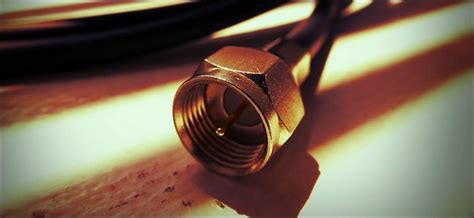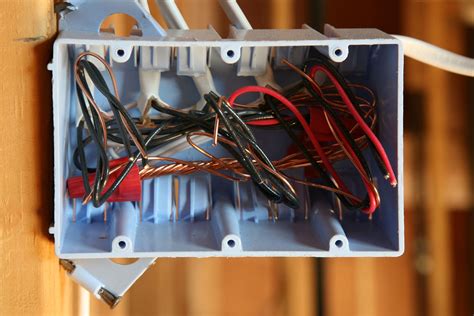do cable boxes really use a lot of electricity Cable boxes can waste quite a bit of electricity, so you might be tempted to unplug yours to save money or put it on a smart power trip to cut the power. Here's why you might want to reconsider.
United Steel Supply furnishes Galvalume®, galvanized and prepainted steel coils for metal roofing and siding applications to the agricultural, commercial, industrial and residential markets, both domestically and for export.
0 · how much power do cable boxes use
1 · do cable boxes waste energy
2 · do cable boxes use that much energy
3 · do cable boxes use electricity
4 · cable box waste
5 · cable box troubleshooting
6 · cable box power consumption
7 · cable box in basement
This super sturdy, adjustable plyo box offers three different height options on one compact, well-designed piece of fitness equipment. This unique plyo box can quickly be adjusted to a 16-inch, 20-inch, or 24-inch height setting using steel spring pins that lock the legs in place.
First, your neighbor is right. Cable boxes and DVRs are shamefully power inefficient. A 2011 study by the National Resources Defense Council(NRDC) found that cable boxes and DVRs were so staggeringly power hungry that, based on the estimate number of these units in the United States the net . See moreTelevisions have always been, save for the earliest tube televisions that actually needed to warm up for a moment, an always on instant . See moreOne question you didn't ask, but that we're going to add to the list, is "What can I do about it?" If you had your cable set up in the last year (or received new cable boxes) there isn't, . See moreYour third question focuses on how much energy your boxes are using. Without actually measuring your boxes there's no way to give you a . See more
It would be easy to assume that the set-top boxes millions of people use for their satellite and cable service have been so power-inefficient over the years because the manufacturers just didn't care about power . Cable boxes can waste quite a bit of electricity, so you might be tempted to unplug yours to save money or put it on a smart power trip to cut the power. Here's why you might want to reconsider.
Yep: energy. All in all, a set-top cable box with a DVR can consume as much as 35 kilowatt hours a month—meaning that it alone can account for a month in electric bills (at least, that's .Their findings indicated that power consumption of the average cable box/DVR combo (~446 kWh/year) was higher the average refrigerator (~415 kWh/year) and was second only to air . If you have a cable box and a DVR, their combined power draw is a stunning 446 kWh per year — more than a new refrigerator. And two-thirds of that energy gets sucked down when the boxes. While it isn’t that realistic to unplug the cable box every time you turn off the television, these devices often wait in “standby mode,” constantly drawing power so they can snap to attention and activity at the touch of a button.
Certain cable boxes can use half as much electricity as a refrigerator, according to the Energy Collective, so there's a lot of room to conserve. And a full 85 percent of American households . According to data from a Natural Resources Defense Council (NDRC) study, cable box standby power usage averaged 16 watts across the homes they surveyed. A cable box that’s idle 20 hours a day uses 116.8 . How could that little innocent cable box that provides so many hours of Monk reruns actually use more energy than a giant refrigerator? The problem is that modern DVRs and other set-top boxes. Their findings indicated that power consumption of the average cable box/DVR combo (~446 kWh/year) was higher the average refrigerator (~415 kWh/year) and was second only to air conditioning units (1500+ kWh/year) in terms of .
It would be easy to assume that the set-top boxes millions of people use for their satellite and cable service have been so power-inefficient over the years because the manufacturers just didn't care about power consumption.
how much power do cable boxes use

do cable boxes waste energy
Cable boxes can waste quite a bit of electricity, so you might be tempted to unplug yours to save money or put it on a smart power trip to cut the power. Here's why you might want to reconsider. Yep: energy. All in all, a set-top cable box with a DVR can consume as much as 35 kilowatt hours a month—meaning that it alone can account for a month in electric bills (at least, that's .

Their findings indicated that power consumption of the average cable box/DVR combo (~446 kWh/year) was higher the average refrigerator (~415 kWh/year) and was second only to air conditioning units (1500+ kWh/year) in terms of highest power use in the typical household.
If you have a cable box and a DVR, their combined power draw is a stunning 446 kWh per year — more than a new refrigerator. And two-thirds of that energy gets sucked down when the boxes. While it isn’t that realistic to unplug the cable box every time you turn off the television, these devices often wait in “standby mode,” constantly drawing power so they can snap to attention and activity at the touch of a button.Certain cable boxes can use half as much electricity as a refrigerator, according to the Energy Collective, so there's a lot of room to conserve. And a full 85 percent of American households have some kind of set-top box, according to the National Cable & Telecommunications Association and the Consumer Electronics Association.
According to data from a Natural Resources Defense Council (NDRC) study, cable box standby power usage averaged 16 watts across the homes they surveyed. A cable box that’s idle 20 hours a day uses 116.8 kilowatt-hour (kWh) of electricity in a year. How could that little innocent cable box that provides so many hours of Monk reruns actually use more energy than a giant refrigerator? The problem is that modern DVRs and other set-top boxes. Their findings indicated that power consumption of the average cable box/DVR combo (~446 kWh/year) was higher the average refrigerator (~415 kWh/year) and was second only to air conditioning units (1500+ kWh/year) in terms of .
It would be easy to assume that the set-top boxes millions of people use for their satellite and cable service have been so power-inefficient over the years because the manufacturers just didn't care about power consumption. Cable boxes can waste quite a bit of electricity, so you might be tempted to unplug yours to save money or put it on a smart power trip to cut the power. Here's why you might want to reconsider. Yep: energy. All in all, a set-top cable box with a DVR can consume as much as 35 kilowatt hours a month—meaning that it alone can account for a month in electric bills (at least, that's .
Their findings indicated that power consumption of the average cable box/DVR combo (~446 kWh/year) was higher the average refrigerator (~415 kWh/year) and was second only to air conditioning units (1500+ kWh/year) in terms of highest power use in the typical household. If you have a cable box and a DVR, their combined power draw is a stunning 446 kWh per year — more than a new refrigerator. And two-thirds of that energy gets sucked down when the boxes. While it isn’t that realistic to unplug the cable box every time you turn off the television, these devices often wait in “standby mode,” constantly drawing power so they can snap to attention and activity at the touch of a button.Certain cable boxes can use half as much electricity as a refrigerator, according to the Energy Collective, so there's a lot of room to conserve. And a full 85 percent of American households have some kind of set-top box, according to the National Cable & Telecommunications Association and the Consumer Electronics Association.
According to data from a Natural Resources Defense Council (NDRC) study, cable box standby power usage averaged 16 watts across the homes they surveyed. A cable box that’s idle 20 hours a day uses 116.8 kilowatt-hour (kWh) of electricity in a year.

do cable boxes use that much energy

sheet metal olympia
Specialties: We are Re-roofing Specialists, utilizing the longest lasting materials modern roofing science has to offer, applied expertly by our experienced craftsmen. United Roofing offers residential and light commercial roofing services, including leak repairs, skylight and vent installations, and full state of the art roof replacements. We help customers select the best .
do cable boxes really use a lot of electricity|cable box waste